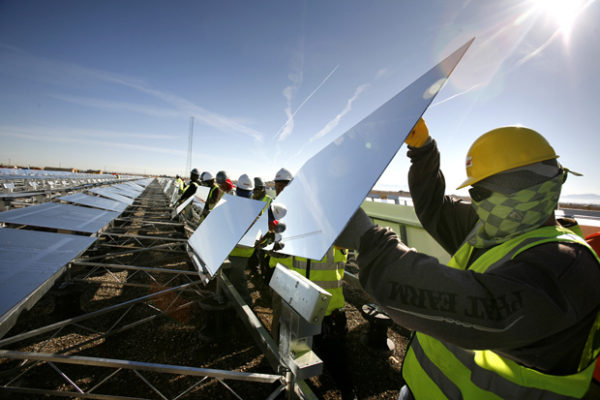
New Jersey Governor Murphy has set forth an ambitious 100% renewable energy by 2050 agenda including an offshore wind program that is on track to make New Jersey a nationwide leader in its development. At the same time, approvals and permits are moving forward for fracked gas pipelines, natural gas generating stations, and gas compressor stations.
This advancement of fossil fuel infrastructure undermines the governor's bold renewable energy goals and diverts attention and resources away from renewable energy development and energy efficiency programs that can benefit our state both environmentally and economically. Renewable energy can drive economic growth and employment in our state both in research and development opportunities and in high-wage installation and maintenance jobs. In addition, the transition to a renewable energy economy can demonstrate the governor's commitment to fighting the disparate impacts of climate change on EJ communities while at the same time offering meaningful employment opportunities to lower-income residents. Clean Water Action recommendations:
- Freeze all current and future fossil fuel infrastructure projects via executive order or other means. Currently, over 7 frack gas pipelines and 4 gas plants are under consideration.
- Use all powers available at the Delaware River Basin Commission to ban all aspects of fracking within the basin – i.e. drilling, water withdrawals and waste water discharges.
- Adopt a strong Energy Efficiency Portfolio Standard. Require a 30% reduction below 2015 levels for electric and natural gas usage by 2030 with clear and measurable interim benchmarks. This will create more jobs, more energy equity at a cheaper cost.
- Create a 35% or better set aside for green energy training and employment in and for EJ communities in green energy and green building sectors.
- Ensure priority funding and use of electric vehicles (EV buses, rideshares, taxis, municipal fleets, goods movement in and around the ports) in EJ communities so as to dramatically reduce greenhouse gases, warming of cities and health harming emissions.
For more information, email njcwa@cleanwater.org.